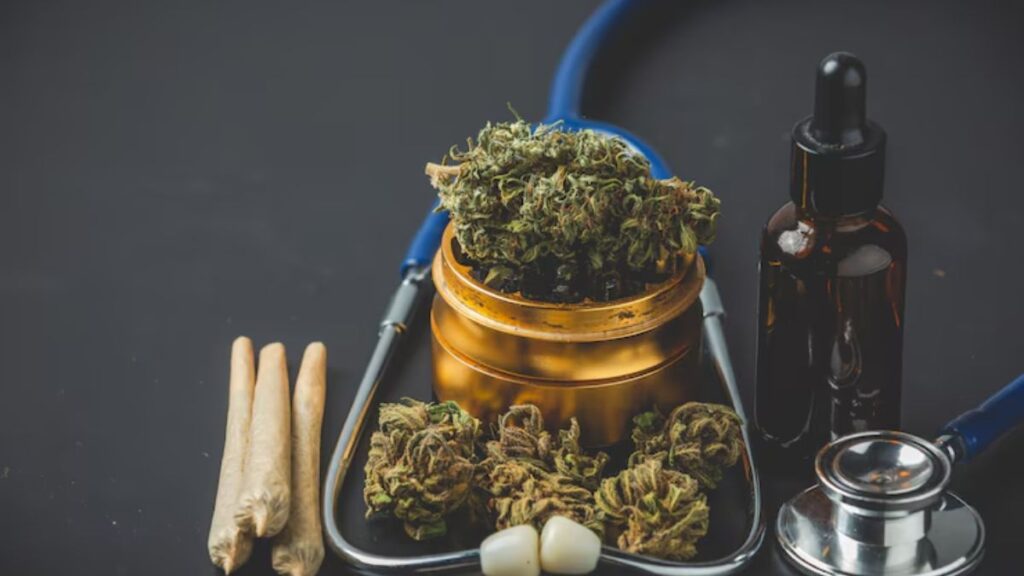Depression is one of the most common mental health disorders worldwide, affecting millions of people across all age groups. Characterized by persistent sadness, lack of energy, feelings of hopelessness, and difficulty concentrating, depression can have a profound impact on quality of life. For decades, antidepressants such as SSRIs (Selective Serotonin Reuptake Inhibitors) and SNRIs have been the standard treatment for clinical depression. However, these medications don’t work for everyone—and for some, the side effects can be just as debilitating as the symptoms they’re meant to treat. As access to medical marijuana expands across the United States, many patients and physicians are asking: Can cannabis be a viable alternative to antidepressants? And more importantly, does it effectively address the root causes of depression, or simply mask symptoms?
How Antidepressants Work—and Their Limitations
Traditional antidepressants work by altering the levels of neurotransmitters in the brain, primarily serotonin, norepinephrine, and dopamine. These chemicals are involved in mood regulation, and an imbalance is often associated with depression. While many patients benefit from antidepressants, the process of finding the right medication can be long and frustrating. Some people experience side effects such as weight gain, sexual dysfunction, emotional blunting, or increased anxiety, especially in the early stages of treatment.
Even more concerning, some individuals don’t respond to antidepressants at all—known as treatment-resistant depression. In these cases, alternative treatments like psychotherapy, lifestyle changes, or newer interventions like ketamine or TMS (Transcranial Magnetic Stimulation) are sometimes explored. In recent years, medical marijuana has entered the conversation as another possible alternative.
The Role of Cannabis in Mood Regulation
Medical marijuana affects the brain through its interaction with the endocannabinoid system (ECS), a complex network of receptors that play a key role in regulating mood, stress response, sleep, and appetite. The two primary compounds in cannabis—THC (tetrahydrocannabinol) and CBD (cannabidiol)—have different effects on the brain.
THC, the psychoactive component of cannabis, is known for producing euphoric and calming effects. It can help improve mood and reduce anxiety in the short term. CBD, on the other hand, is non-psychoactive and has shown promise in reducing inflammation, promoting relaxation, and balancing brain chemistry—potentially without the “high” associated with THC.
Can Medical Marijuana Truly Replace Antidepressants?
While anecdotal reports and small studies suggest that cannabis may help relieve symptoms of depression—such as insomnia, anxiety, and mood swings—it’s important to understand that cannabis is not a direct substitute for antidepressants. Rather than targeting serotonin reuptake or similar mechanisms, cannabis works by modulating the ECS, which influences a wide range of bodily functions.
Some patients report that cannabis use allows them to feel more emotionally balanced and better able to cope with daily stressors. For people who have not found relief with traditional antidepressants or who struggle with side effects, medical marijuana may offer an alternative route. However, there is limited large-scale clinical evidence to definitively prove its long-term efficacy as a standalone treatment for major depressive disorder.
Moreover, cannabis can also pose risks, especially when used improperly or without medical oversight. In some people, particularly those with a history of mood disorders or predisposition to psychosis, high-THC cannabis may actually worsen symptoms of depression, anxiety, or paranoia. Regular, heavy use can also lead to dependency and withdrawal symptoms in some cases.
The Importance of Medical Supervision
One of the most important aspects of exploring medical marijuana for depression is ensuring it’s done under professional guidance. A qualified healthcare provider can help determine whether cannabis is appropriate, suggest suitable strains or ratios (such as high-CBD, low-THC), and monitor for adverse reactions or interactions with other medications.
In Mississippi, where medical marijuana is now legal, patients must go through an evaluation process to determine eligibility. Depression may not be specifically listed as a qualifying condition, but related symptoms—such as chronic pain, PTSD, or anxiety—might provide a pathway for access. Patients interested in exploring cannabis for mood-related conditions can learn more about how to get a medical mj card in MS by consulting with a licensed physician and applying through the state’s medical marijuana program.
A Tool—Not a Cure
Ultimately, medical marijuana should be viewed as a tool rather than a cure for depression. While it may provide relief for some individuals, it’s rarely effective as a standalone treatment for severe or persistent depressive disorders. For best results, it should be part of a broader mental health plan that may include therapy, exercise, healthy sleep habits, and nutritional support.
As research continues to evolve, we may gain a better understanding of how cannabis can be used more precisely in mental health care. Until then, patients and providers must weigh the risks and rewards carefully—and always prioritize safety, education, and informed decision-making.







